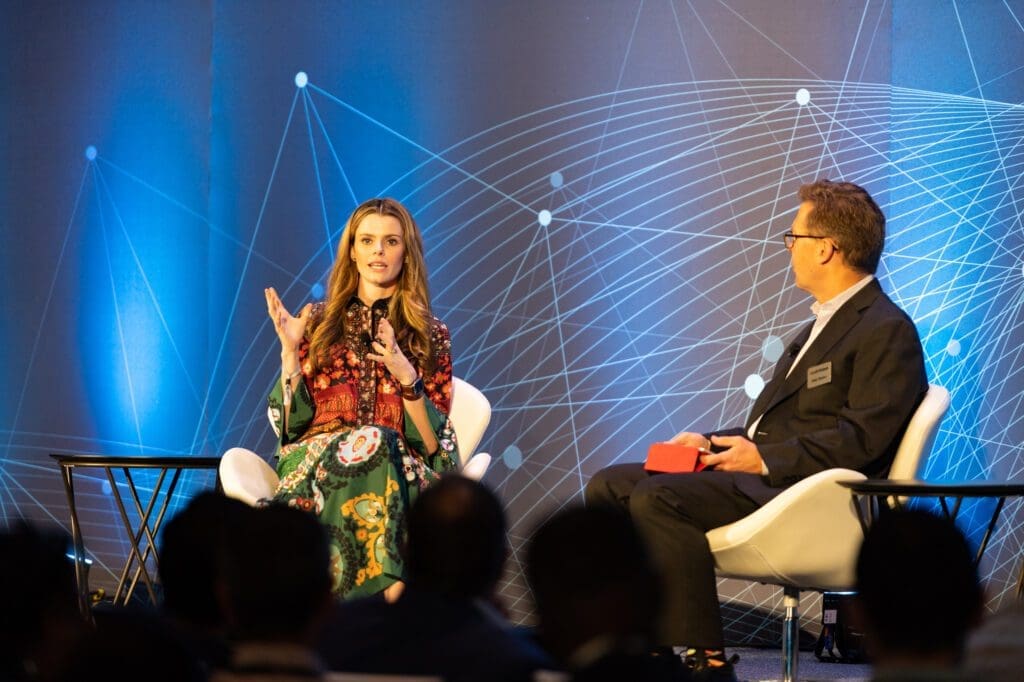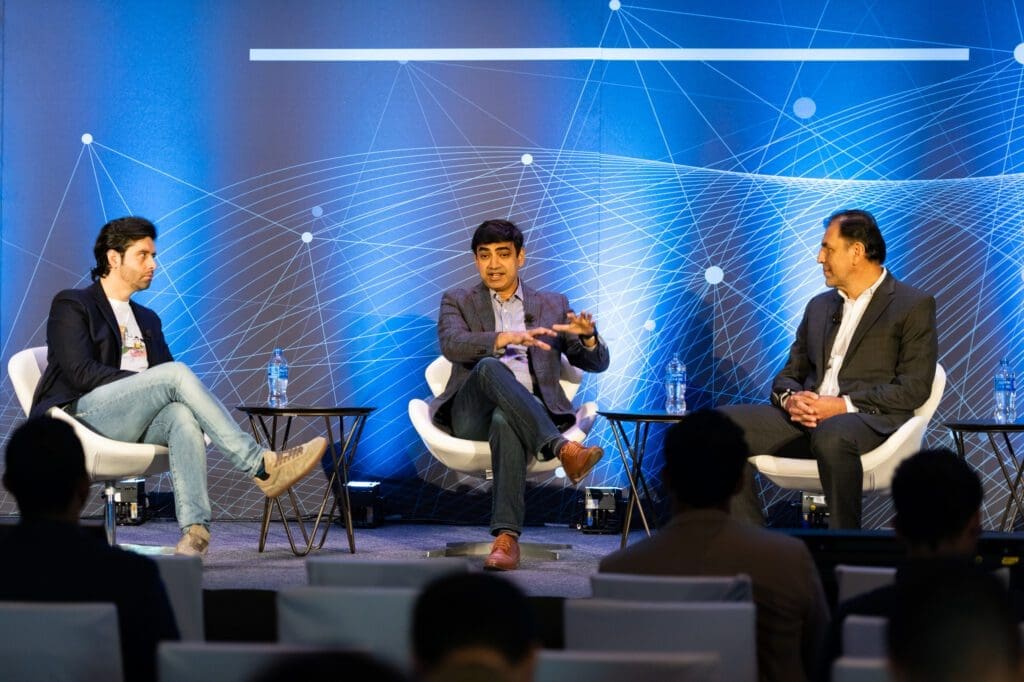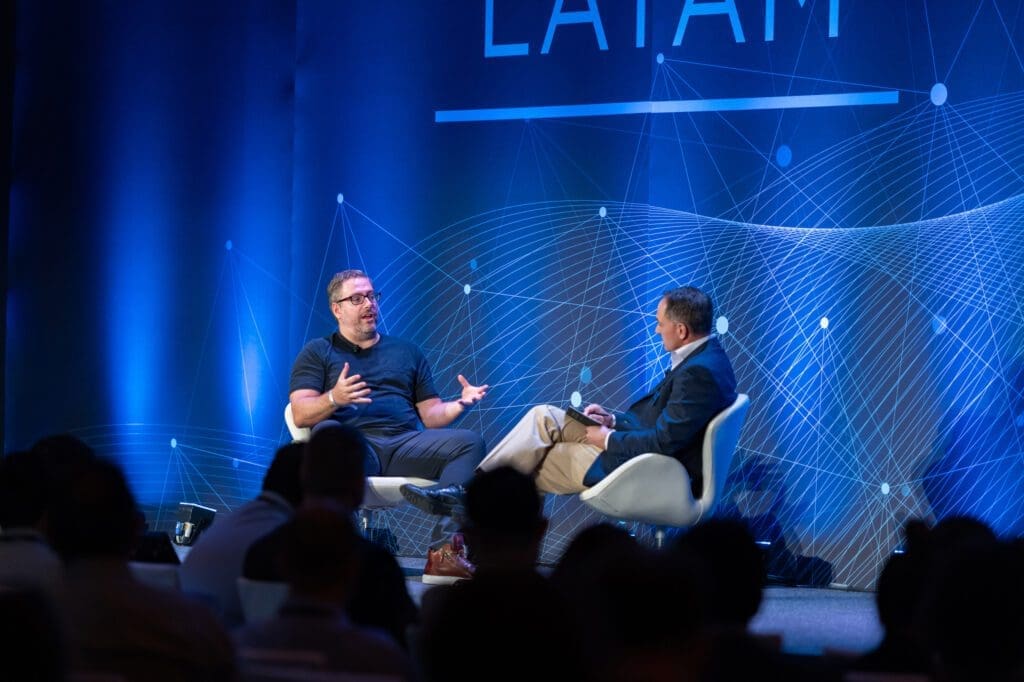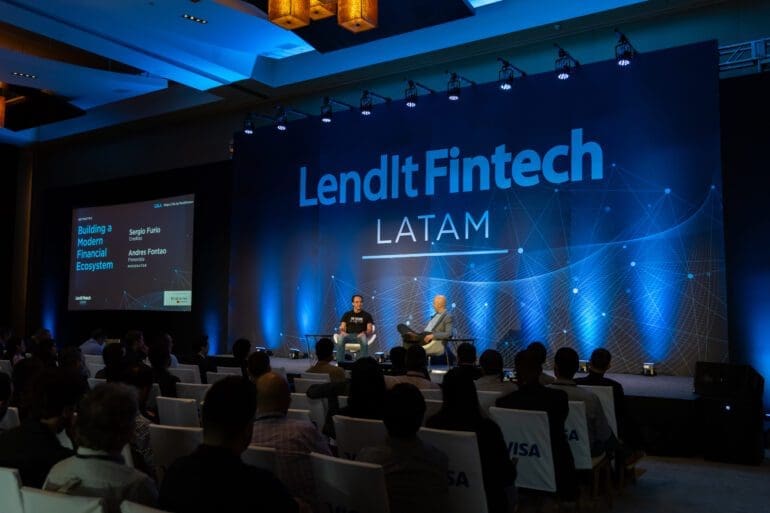The Latin American fintech community gathered in Miami last week for the third annual LendIt Fintech LatAm event.
This was a hybrid event, but interestingly, more than 75% of the almost 800 people who registered decided to attend in person. The mood was celebratory as everyone in attendance was so delighted to be back to meeting in person.
The timing was fortuitous in that our event came in the same week as the Nubank IPO, so it was the talk of the event and was mentioned in many, if not most, of the sessions. Everyone was hoping for a successful outcome there, and there was much pride that the largest fintech IPO in history would be a Latin American company.
As I do after every event, I provide my thoughts on the keynote speakers and the engaging new lessons learned.
Sergio Furio opens event
Opening the event this year was Sergio Furio, the CEO, and Founder of Creditas, the leading Brazilian online lender. Creditas offers loans secured by real estate or cars and has recently launched a salary finance tool for those people who don’t own a car or home.
He talked about the challenges of expanding internationally and said that fintechs should think twice before expanding to another country. Creditas expanded to Mexico from Brazil, and it has been very challenging duplicating their success there. He jokingly said that he lights a candle every night and prays for a successful IPO for Nubank. He knows the team there well, they have a strategic partnership, and a successful IPO will be great for Latin American fintech.

I had the pleasure of interviewing an up-and-coming fintech star, Brynne Rojas, the CEO and Co-Founder of Habi. Founded in 2019, Habi has had tremendous traction as they look to transform real estate in Colombia and Mexico. She countered Sergio’s suggestion that fintechs should hold off expanding internationally, saying that they are enjoying good early success in Mexico. Habi is taking the long, complicated offline processes for buying a home and bringing it online. She says developing trust is crucial for new fintechs looking to take on incumbents, and at Habi, they have deliberately tried to establish trust within the communities where they operate.
Challenge of going public
Sumita Pandit is the Chief Operating Officer of publicly traded payments fintech dLocal. She talked about the challenges of going public when there were no other comparable public companies in Latin America. Interestingly, she said that the “Latin American discount” is going away when it comes to company valuations as investors are starting to appreciate the opportunity that exists in the market. While Brazil has high credit card penetration, most Latin American countries do not, and this is why two-thirds of the payments they process are with alternate payment methods. Her advice to fintechs was to be nimble as regulations can change very quickly, and you need to be ready to adapt.
We discussed leveraging real-time data to reduce credit risk with Mastercard and Banco de Bogata executives. They talked about leveraging AI to analyze real-time data to reduce fraud, something they have succeeded with billions of dollars of potentially fraudulent transactions stopped. But when you are implementing these systems, you need to focus on the customer experience and how your decisions impact the end consumer. The essential component of any AI system is the quality and relevance of the data you are feeding into it. Do that well, and you can make a real impact on reducing credit risk.

Next up was Pierpaolo Barbieri, the CEO, and Founder of Uala, the leading Argentinian fintech. Pierpaolo is a force of nature as he is one of the most energetic and articulate fintech leaders. He appeared virtually and shared his philosophy of product development and international expansion. You need to get your core product right before you expand into other areas, and he also mentioned the importance of building trust. The biggest challenge for Uala is obtaining regulatory licenses as these become a moat for established players. There is a race between the incumbents who want to digitize and the fintechs that are building scale. He welcomes competition from banks and other fintechs as more competition is needed in Latin America. But he said the biggest competition for all fintechs is cash. We need to move consumers into the digital financial system away from cash.
Moving away from spreadsheets
The CEO of Worky, Maya Dadoo, opened our eyes to the challenges of payroll and HR systems in Mexico, where most people are still using spreadsheets. There are no benefits for employees in most Mexican SMEs, which explains why the annual employee attrition rate is 60%. There are four million SMEs in Mexico, and 3.8 million use on-premise software, like a spreadsheet that connects with nothing. Worky has to build all its systems in-house because there is no HR software infrastructure whatsoever. The highest demand products for SMEs are loans, followed by wage advance (a type of loan) and finally savings. There is a huge demand for HR solutions because there is little help available for SMEs.
Christine Kenna is a partner at Ignia, the Mexico City-based venture capital firm with half its portfolio focused on fintech companies. She said what has changed in the last 20 years is that we now have the technology to change lives. We are at a pivotal moment because not enough consumers’ lives have been changed, but the potential is there. Fifty percent of the emerging middle class are working in the informal cash-based economy, but close to one hundred percent of this population will have a cell phone. Therein lies our opportunity.
The most popular session of day one was my interview with David Poritz, the Co-CEO of Credijusto, the fintech SME lender. Our discussion focused on their acquisition of a bank, becoming the first fintech in Latin America to complete this kind of transaction. He openly shared their reasoning, the process, the challenges they encountered, and how he feels now the transaction is behind them. The biggest reason for a fintech to do this is for regulatory certainty. The second reason is a cheaper cost of capital that allows companies like Credijusto to serve a broader SME population. David was a good sport in answering most of the more than two dozen questions from the audience.
Day Two started with a bang
Day two on the keynote stage began with an exciting discussion between Eduardo Coello of Visa and Matias Carro of PedidiosYa, the online food delivery leader in Latin America. Matias shared that almost all transactions were in cash just two years ago. Today it is 75% digital payments. The tide has started to turn. With few large corporations in Latin America, the economy is primarily driven by SMEs, so we need to focus on this segment. Providing them with easy tools for electronic payments provides convenience for the consumers and better intelligence for the SMEs. PedidosYa is launching its first card for consumers soon, and it will be a digital-first card with specific benefits for their customers.
One of the legends of Latin American fintech is Hernan Kazah, the co-founder of Kaszek Ventures, one of the early VCs in the space. Hernan was also the co-founder of Mercado Libre, the Amazon of Latin America. He recently raised two new funds, $500 million each, and he commented what a long way the region has come since he raised his first $100 million fund almost a decade ago. The significant change in the past year has been the acceleration of the digitalization of finance. For fintech companies with a product-market fit can scale much quicker than before. And while some areas of Latin America have political instability, he noted that “technology trends are much stronger than political trends.”
Startup competition heats up
Next up, we had our annual PitchIt startup competition. We had eight startups pitching live in front of a panel of leading venture capital firm judges. Most of the startup pitches were excellent, with one or two exceptions. My favorite was Brelo, a Brazilian startup focused on secured small-dollar lending using the cell phone as collateral. They earned the runner-up prize from the judges, with the winner being Yave, a Mexican startup providing an embedded finance platform to power home mortgages in Mexico. Similar to how Blend started here in the US, Yave is making waves in a market dominated by five banks that collectively have a 98% market share. It seems like disruption just waiting to happen.
I noticed that the name Angela Strange, the well-known partner at Andreessen Horowitz, was mentioned regularly over the two days, and so when it came to her turn to speak, it was a packed house. She joined us virtually, sharing her investment strategy in Latin American fintech. She likes infrastructure companies right now. She said, “the more boring your company, the more interested I will likely be in it.” As the tech infrastructure matures, more companies will want to layer on financial services, so she sees enormous opportunity there. Now that there is more capital flowing into Latin America to compete, she is going in at earlier stages and writing check sizes all the way down to $2 million.

Wrapping up the keynote stage was probably my favorite speaker of the entire event. Paulo Passoni runs LatAm investment for Softbank, controlling a behemoth $5 billion fund. He runs a 60-person team based out of Miami, and his fund is run independently from the rest of Softbank. He had an interesting observation: Latin America has caught up with the US and Europe when it comes to VC penetration as a percentage of GDP. He also talked about board makeup. Fintech founders don’t do enough to shape their boards effectively, saying you should be more careful about who goes on the board than you should be about who is investing. His favorite space to invest right now is crypto, it is just getting started, and there are tremendous opportunities in many areas. Finally, he talked about the Softbank philosophy of not optimizing for 100% success. They only want 60-70% success ratios saying if you are too careful, you will miss some fantastic opportunities.
The two days exceeded all of my expectations, and I just loved the energy from the entrepreneurs. They know we are at an interesting inflection point with everything in place now for fintech to thrive. Many of the speakers had a palpable urgency as they knew this window would not stay open forever. I expect a lot of progress will be made before we gather in Miami again in 12 months.


